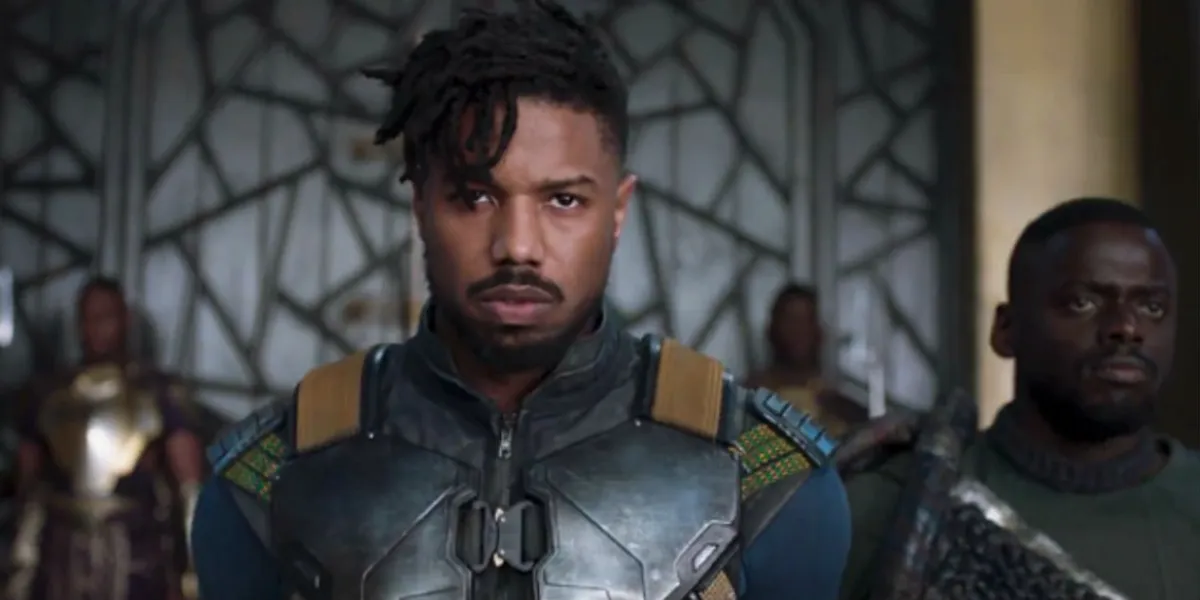**Spoilers for Black Panther.**
Much like everyone else, I was super excited to see Black Panther. There was so much hype going on around this film that it was hard to say what I would love the most about it. With the teaser trailers that came out as the movie got closer and closer, I figured it would be another fun action-packed movie set in the Marvel Universe.
What I didn’t expect was to identify so hard with its main antagonist, Erik Killmonger. There have been so many articles written about how Killmonger represents the tear between the African people and African-Americans, but I would go a step further and say Killmonger represents an individual who has been torn away from their culture.
I’m biracial. I was born and raised by a white mother and abandoned by a black father before I was born. I’m fair-skinned, with green eyes and dark brown hair. Growing up, I was constantly bombarded with the cringeworthy question of “What are you?” before I even had a concept of race, as early as five years old.
My mother would explain our ancestry, and she would show me pictures of who my father was. Still, it was made abundantly clear by the rest of the world—from random strangers to my peers—that there was something “different” about me based on the way I looked.
While we only get a glimpse of Killmonger’s childhood in Black Panther, we know that his father was forcibly taken from him through violence. Though he knew something of Wakanda, he wasn’t brought up in Wakandan culture; all he had was what his father left behind. He was left with fragments, with stories, but he had to piece all of that information together the best he could, on his own. In spite of his best efforts, he was close to the culture, but he never had complete access to it.
Being biracial has felt the same way. Throughout my life, I have strung together bits of information about my own blackness, my relation to it, and what it meant to and for me, but I had to figure it out for myself, while getting pushback along the way. And that feeling hurts. It hurts to feel left out. It hurts to feel left behind. It especially hurts when people around you constantly remind you of what you’re not.
While Killmonger’s return to Wakanda is aggressive, he comes bearing gifts and what he thinks is a surefire way to cement a sort of solidarity, but throughout his stay, he’s treated as an outsider. There’s no one to welcome him. Even when he shows his tattoo, he’s met with suspicion. He’s not like everyone else. He carries himself differently, dresses differently—speaks and acts differently. He’s not “Wakandan enough,” although he has clear, visual proof that he absolutely and certainly is.
My turning point was having someone come up to me at an event I was attending and say, “We want you for our black family photo!” That was a first for me. There were plenty of people throughout my life who tiptoed around my blackness, or reminded me how I somehow wasn’t “black enough” to access it. All it took was that one moment to realize that I was enough, and I did belong.
But in Killmonger’s case, not having that kind of validation leads to anger. In Wakanda, he tries to act the best way he knows how—the only way he knows how—because he doesn’t know anything else. No one was around to tell him that things don’t have to happen through violent force. Instead, he was met with a life of being pushed aside by the people who should have embraced him and showed him the way.
That’s why his death is absolutely tragic. It’s too late for the reconciliation he wanted and needed. Death is better than bondage. It’s better than being cast aside yet another time in his life. It’s better than cementing the fact that he was “lesser than” the family he had left.
Had one person reached out to Killmonger, could things have been different?
T’Challa seemed to think it was a possibility when he told his father that he’d been wrong to shut his nephew out. Who’s to say?
But maybe it would have been enough.
(image: Marvel Entertainment)
Want more stories like this? Become a subscriber and support the site!
—The Mary Sue has a strict comment policy that forbids, but is not limited to, personal insults toward anyone, hate speech, and trolling.—









Published: Mar 7, 2018 09:49 am